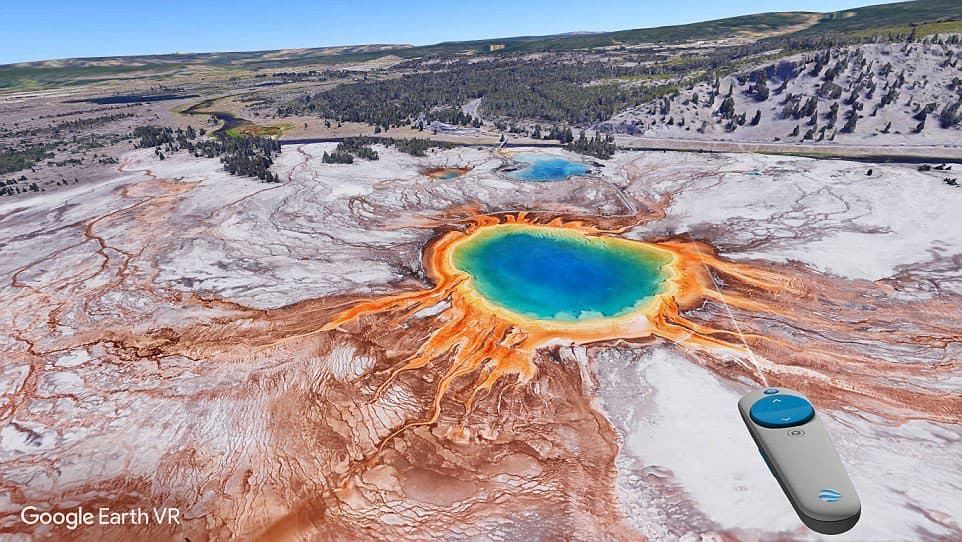The Guardian has a fascinating piece on space tourism – how you will soon have the opportunity to be an astronaut in Virtual Reality. Even though there’s a number of space tourism projects underway, the vast majority of us will never afford the tickets prices at hundreds of thousands of dollars. Yet for many of the astronauts who have spent time at the International Space Station, it’s been a life-changing event to experience the earth from above.
We already have the ISS app on our phones – in fact, I get notified when it’s overhead and it’s one of the few non-work or non-personal notifications I don’t mind. It’s amazing to switch on the live-view of our planet. But of course, it’s a flat screen and VR will offer so much more.
An astronaut in virtual reality

According to The Guardian,
Now two UK-based companies have joined forces to offer the experience to virtually anyone. And the key word is virtual.
Immersive content studio Rewind and the space industry experts at In-Space Missions have launched SpaceTime Enterprises. They plan to launch multiple satellites that will broadcast real-time immersive video of the entire Earth. To plug into this view, the only thing needed will be a set of virtual reality goggles.
“We want it to become commonplace to ‘be’ in space because by being in space you actually connect with the planet,” says Doug Liddle, CEO of In-Space Missions.
The key to making this happen is to get a camera with a live-video feed orbiting the earth.
With £2.5m of funding in place, the first satellite is scheduled for launch in September 2019. It will carry cameras that can deliver images of the whole Earth at the same resolution that your eye could see from up there.
And SpaceTime Enterprises plans to expand from there, giving you the option of virtually experiencing the earth from multiple locations in outer space. You’ll be able to fly around and zoom in on specific points of interest much like you currently do in Google Earth. Google’s popular VR app is one of our favorites and the inclusion of Google StreetView last fall made it even more immersive. But its one failing is that the data is not live and only as fresh as Google’s updates.

The ultimate plan of the SpaceTime initiative is to go beyond the use of virtual reality and incorporate AR to overlay data. According to VentureBeat,
These satellites will be fitted with cameras capable of broadcasting images of space in real-time and even overlaying information such as meteorological systems, atmospheric phenomenon, celestial bodies and more.
A live virtual reality experience from space would be a game-changer for our experience of the earth, especially when we can add layers of data.
The academic and psychological implications
Of course, there’s mind-boggling research potential in this development. Want to study the plastics in the ocean? Let’s look at the live data. Devastation in the Amazon rainforest? We’ll track the acres of forest to cattle grazing.
Even with one camera, SpaceTime plans to offer the most current gigapixel map of the earth – refreshed every 11 hours or sooner. With multiple satellites, we have a live VR experience.
But there’s also the psychological implications of seeing ourselves from space, as an astronaut in virtual reality. Perhaps it will give us a different perspective on what it means to share this small home in the vastness of the cosmos.
As The Guardian notes,
If SpaceTime Enterprises and the other companies succeed in making these views as widely available as they hope, the world’s largest psychology experiment could be about to begin.
This is just the beginning of how we will integrate VR into space travel and exploration. By the time we get an expedition to Mars, we may all have the chance to virtually step on the surface.
Once again, technology continues to democratize human experience, making events available to all. It’s a fascinating development.
Emory Craig is a writer, speaker, and consultant specializing in virtual reality (VR) and artificial intelligence (AI) with a rich background in art, new media, and higher education. A sought-after speaker at international conferences, he shares his unique insights on innovation and collaborates with universities, nonprofits, businesses, and international organizations to develop transformative initiatives in XR, AI, and digital ethics. Passionate about harnessing the potential of cutting-edge technologies, he explores the ethical ramifications of blending the real with the virtual, sparking meaningful conversations about the future of human experience in an increasingly interconnected world.

